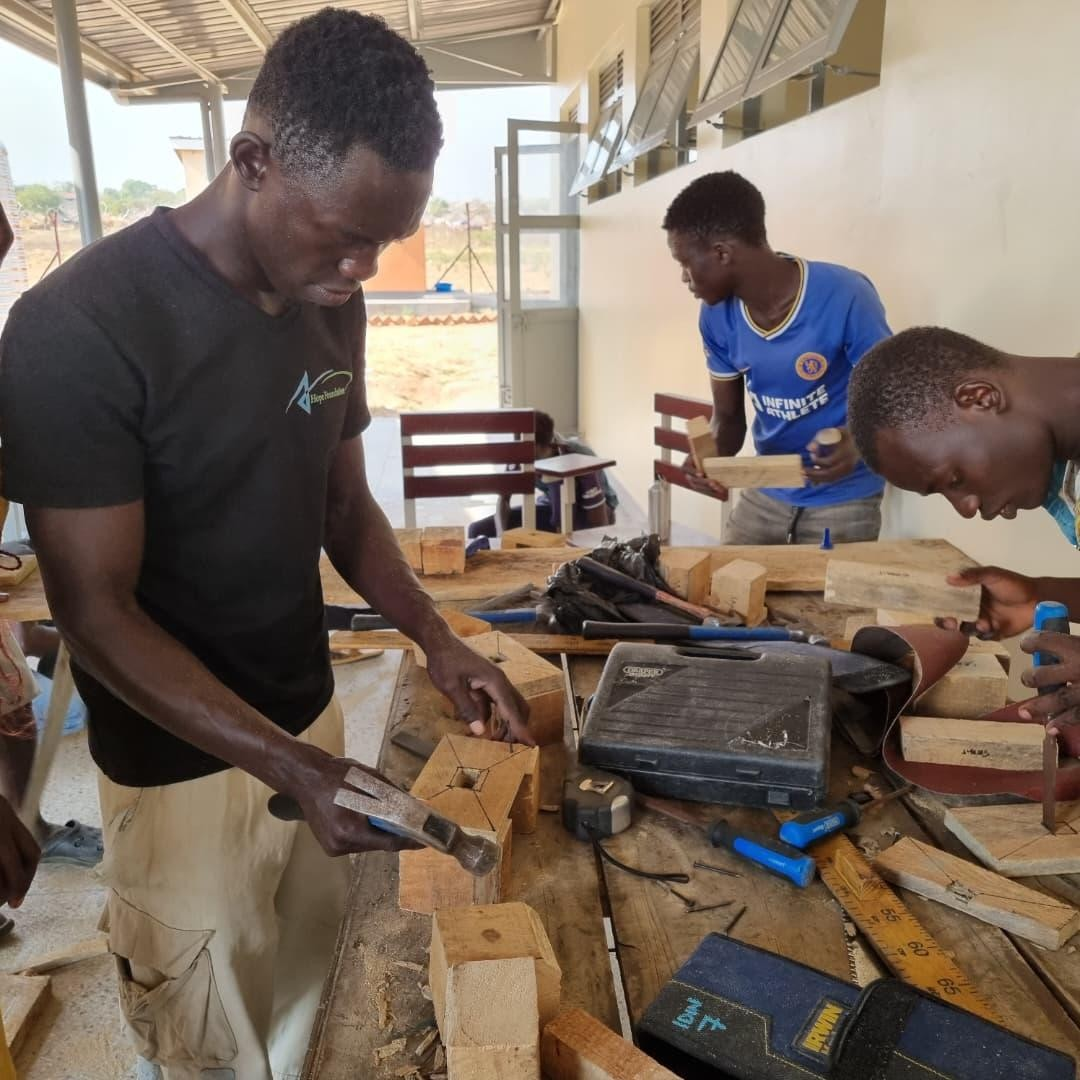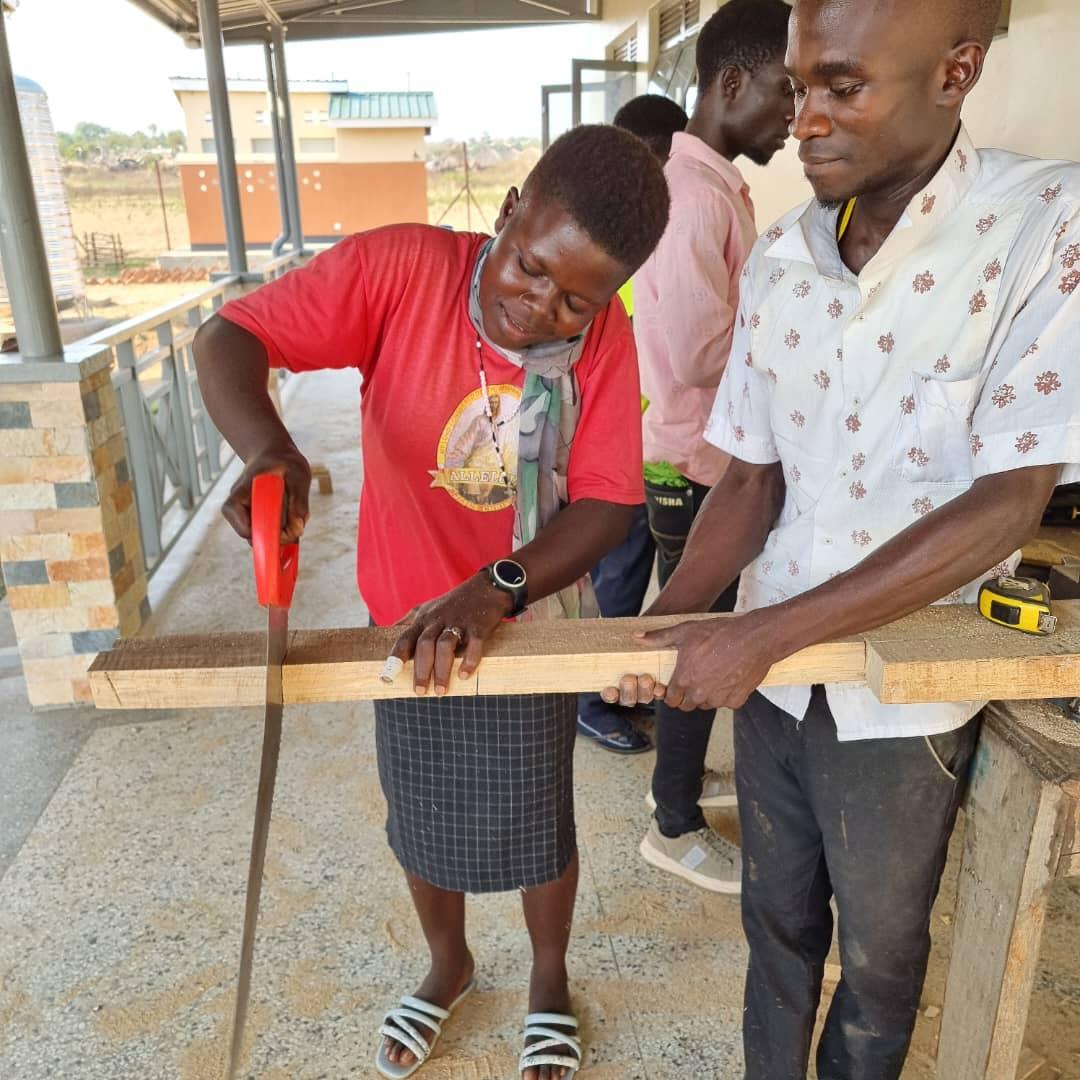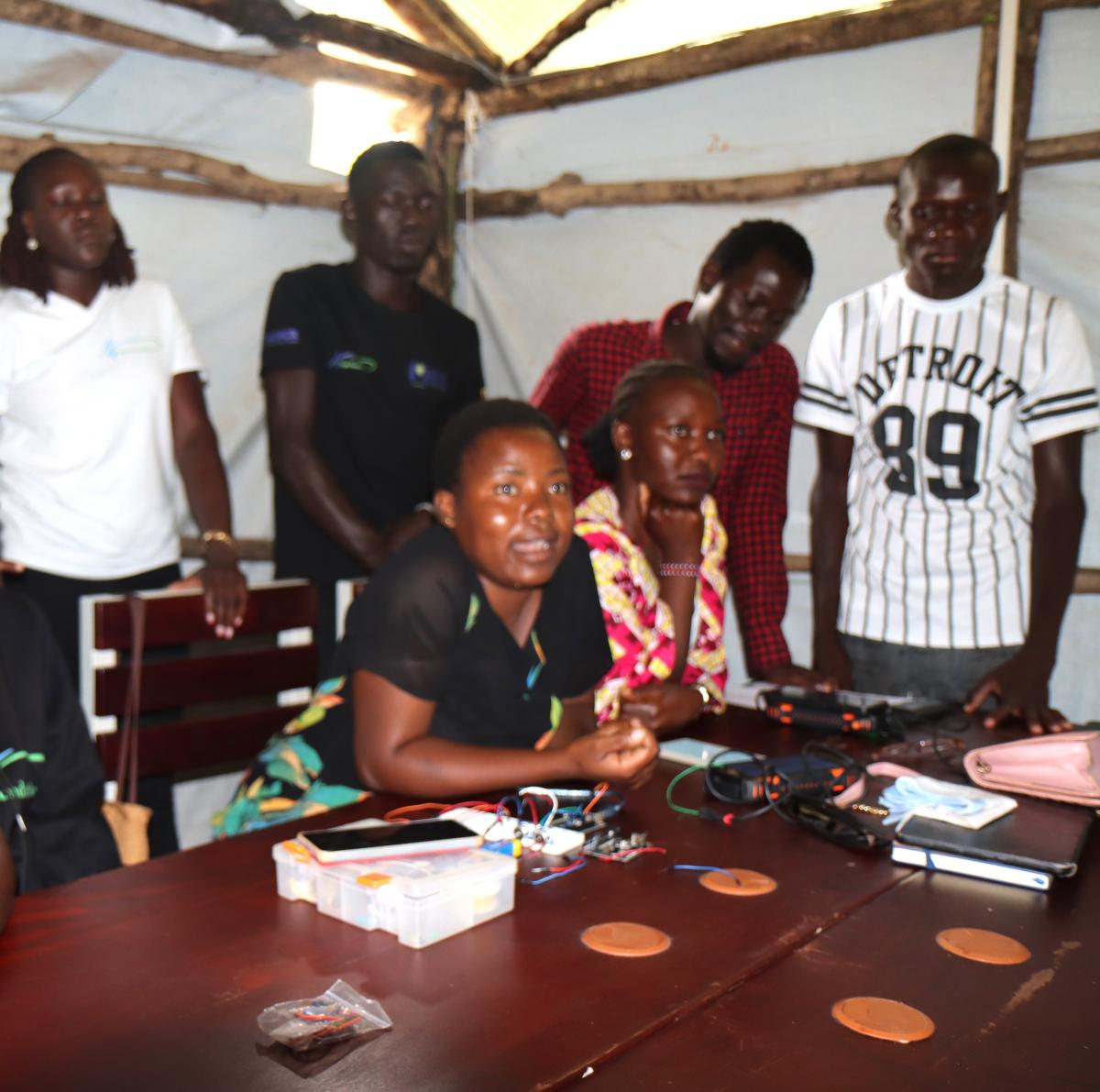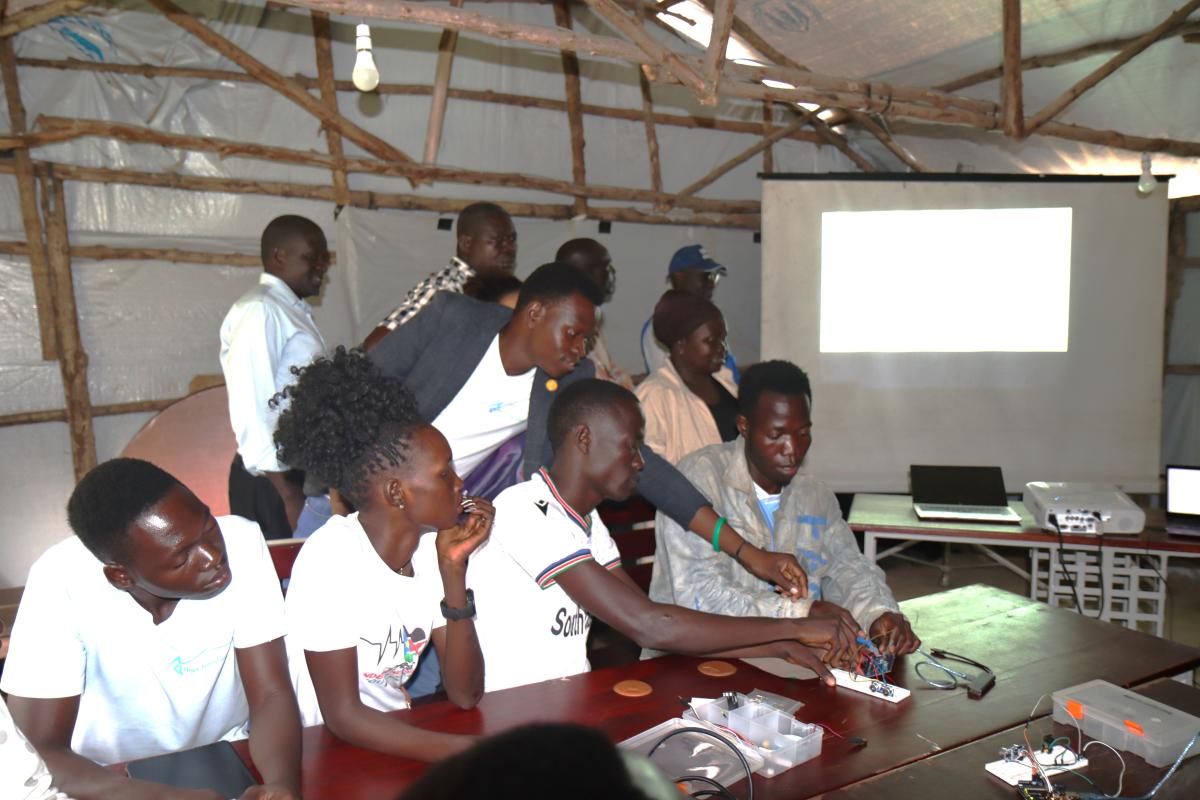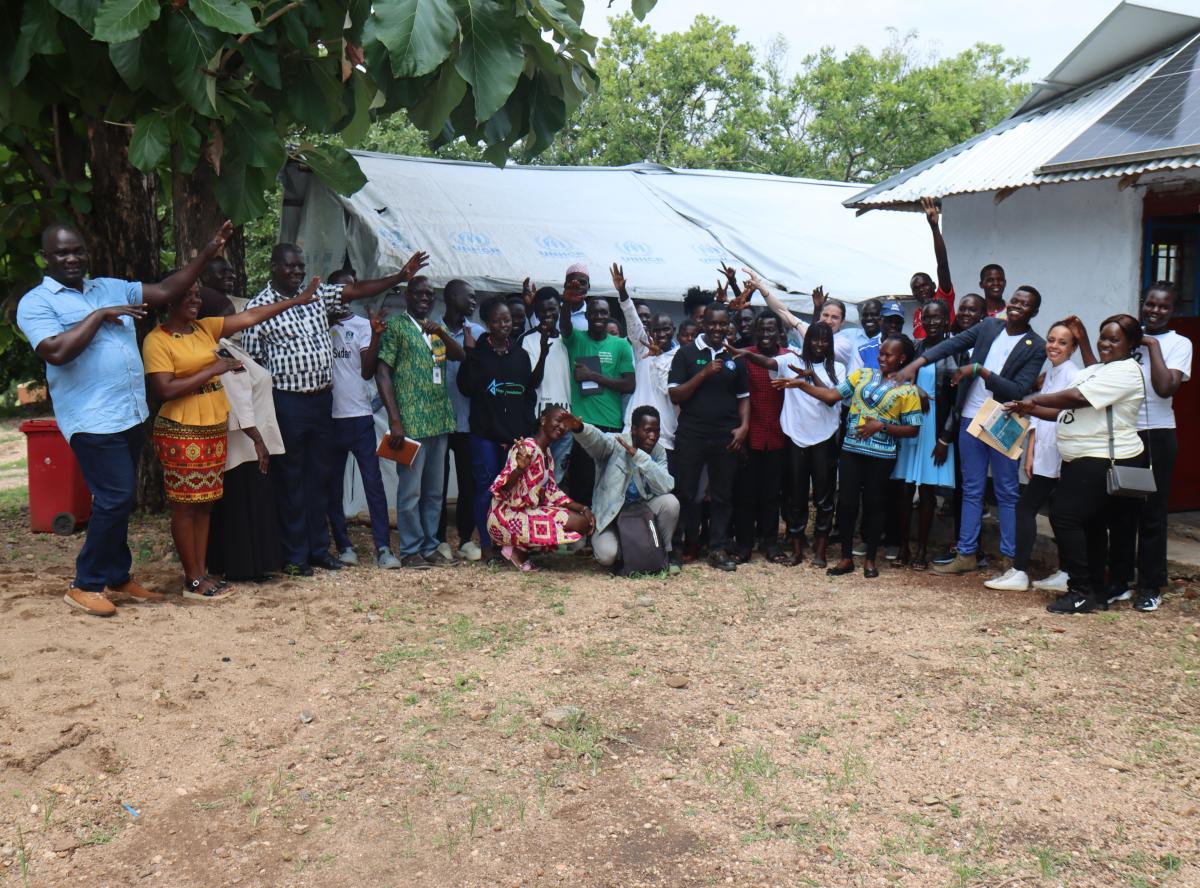Refugee youth drive innovation and technology in Uganda
Young people, mostly
refugees from Congo and South Sudan are harnessing technology to create real
solutions for their community in Imvepi Refugee Settlement, West Nile-Uganda.
Through a partnership between Hope Foundation, a refugee youth-led
organisation, and Enabel, an ICT innovation hub was established in 2023 under
the Support to Skilling Uganda project. Since then, about 90 youth, of whom 70%
are refugees, have passed through it.
The innovation hub,
managed by Thomas Okiria, founder and programmes manager at Hope Foundation,
first equips youth with three months of ICT training. After that, they are
placed in groups and encouraged to turn their ideas into working prototypes
that address local challenges. To support this process, Hope Foundation
collaborates with other organisations that provide materials the youth need to
design and test their equipment.
Already, the hub has
produced several impressive innovations: a cassava grinding mill, a
chapati-making machine now being used to sell chapatis within the community, a
soap-making machine, and ovens for baking cakes. One group is working on a baby
thermometer to help local clinics, where the only available option is the
hard-to-use armpit thermometer. They hope to scale production and partner with
the government to supply health centers.
“Initially, we only
trained youth in ICT,” Thomas explained. “But through our partnership with
Enabel, we have gone beyond training to ideation—supporting them to develop
prototypes that can be turned into real products for the market.”
Enabel, through the
WeWork – green and decent jobs for youth project, has strengthened the hub by
providing a projector, two laptops, two tablets, a printer, and a laminating
machine, along with solar power to ensure continuity of work. The youth are even
using AI tools like ChatGPT to design new ideas, including motion detectors.
“We make products for
people here because we understand their daily needs,” said Thomas. “We are also
working with the Office of the Prime Minister and Uganda Registration Services
Bureau (URSB) to ensure our products are tested, approved, and fairly taxed.”
During a recent visit
to the hub, which brought together representatives from the European Union,
Enabel, and OPM, Charles Okot, the WeWork project manager from Enabel,
encouraged the youth to focus on everyday challenges. “Let’s think about things
people need every day so the money keeps coming in,” he told them.
Prototypes such as the
chapati-making machine, soap-making machine, and a grinding mill are already
generating income for the developers, while others like the wheel cart, a
tricycle mode of transport, are being piloted in the community. With new plans
underway by Enabel to train youth in business and videography, they will soon
be able to market their products more effectively.
The West Nile Refugee
Desk Officer (Office of the Prime Minister), Jena Toma, noted that 50% of
Imvepi’s population is youth and thanked the European Union, through Enabel,
for investing in their future. “Let’s use this ICT lab to make positive
change,” she said.
The refugee and
host-community youth at Imvepi are proving that with the right skills,
mentorship, and resources, local solutions to local problems are possible—even
in displacement settings.
Latest news from this project
No news
